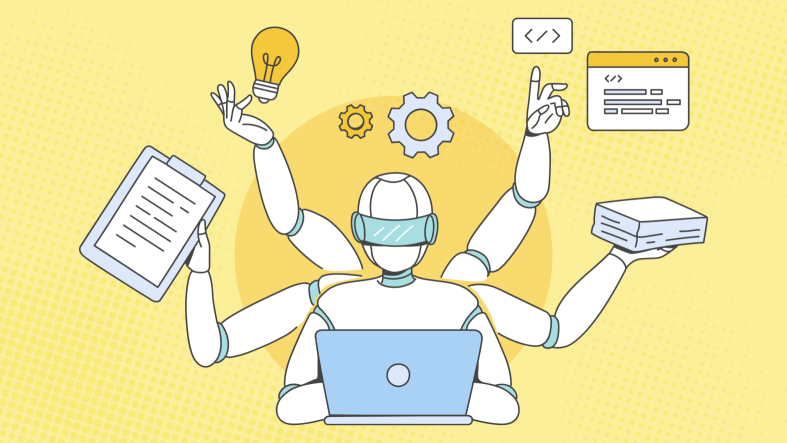Artificially Intelligent systems learn from the data they are provided. Think of each data point as a unit of experience. The more the model sees, the more it learns. But at a certain point, it has learnt all it can, from the data that is provided to it. In order to push the boundaries, we need to "take the training wheels off", in a sense. We need to expose the model to more challenging scenarios, and let it fail. It then learns from this failure and, over time, gets better. This fairly simple idea is referred to as Adversarial Machine Learning. We actively engineer examples that are easily understandable to a human, but are able to fool the model, to challenge it and make it more robust.
From Bruce Wayne to Batman - SEB's Tech Talent of the Year
Like many others in this field, my path is not entirely straightforward. I was initially conflicted between wanting to take up music as a career path vs. continuing my education after high-school. At University, I majored in Mathematics during my undergraduate studies and from there, transitioned to studying Machine Learning at the KTH Royal Institute of Technology. So, while I have a good grasp of the math that goes into building complex Machine Learning Algorithms, I didn't have much experience in putting these algorithms to work for me in business-related contexts. This is where SEB comes into the picture.
Every year since 2020, SEB has hosted an annual contest for students in STEM fields from Sweden and the Baltics, giving them a chance to showcase their potential and get real-world experience working with Data in the Industry. This year, after a gruelling selection process in February, I was chosen by the jury as the winner of this contest. It was thus that I found myself in SEB's office in Arenastaden on 12 June 2023, about to embark on a journey like no other.
A bank has lots of data being generated by the various systems and processes in place to help customers. SEB is actively using this data to generate useful insights. For instance, we use transaction data of Corporate Customers to predict how much their company will grow, in order to proactively support their growth journey. Traditionally, it has been difficult to extract insights from text data using AI, making text data fly under the radar of many companies. Only recently has this field picked up momentum, think ChatGPT. And there is a lot of interest within the bank to explore the possibilities.
SEB is exploring the different ways in which language models can be used to benefit our business, and one of the potential areas is question-answering systems. There is a lot of documentation, agreements, contracts that need to be kept in mind when making business decisions, and it often takes a long time to sift through them manually. A tool that provides answers to our questions by referring to all this text data would be useful in almost all business divisions across the bank. Since we're a global organisation with people from diverse backgrounds, it is important to make such models robust to different ways of wording a question, minor grammatical errors, etcetera.
My work during the summer was focused on developing infrastructure and Proof-of-Concepts to help SEB develop the capabilities to deliver functional and robust Machine Learning models based on text data. In particular, my work largely consisted of:
- Developing infrastructure in terms of a Dashboard and Data Warehouse to help the Bank annotate and store internal text data in a consumable manner.
- Using Adversarial Machine Learning to help improve our existing QnA systems.
- Building context-aware Question Answering Systems using Large Language Models.
In the next part, we will take a closer look at each of the pieces of the puzzle and see how they fit together. Stay tuned!

